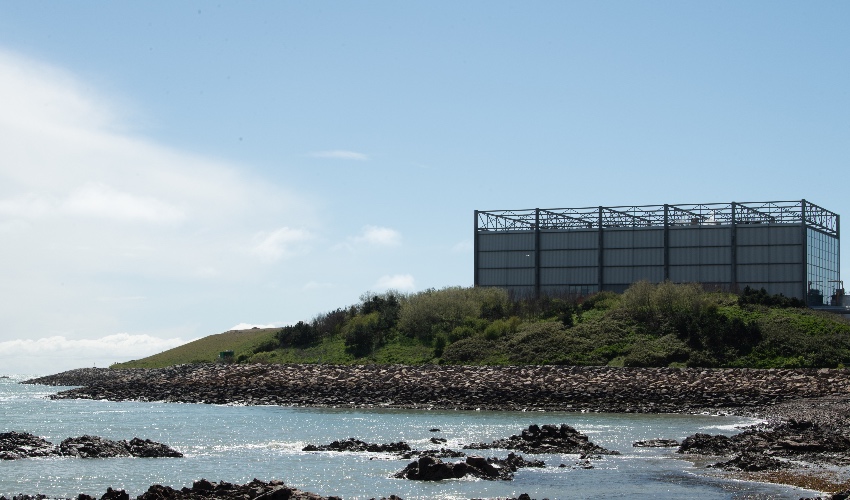


Large headlands containing sealed pits of hazardous waste, including asbestos, which have been formed over the last two decades without planning permission finally have official consent.
On Thursday, the Planning Committee approved a retrospective application from the Infrastructure Department for the existing mounds at La Collette, which total around 400,000 tonnes of contaminated material which is mostly contained in lined cells which are covered in topsoil.
The headlands currently rise to a height of around 17m above the rocky breakwater which surrounds the reclamation site south of the incinerator.
In receiving retrospective permission, Infrastructure will be able to increase the heights of the mounds by another metre, keeping the site open to new contaminated waste until the end of this year.
However, a separate planning application was submitted on Wednesday which asked for permission to grow the existing mounds by another 4.5m in height and create a new headlands of inert waste to the south and west of the site.
In arguing for the retrospective approval, Infrastructure and Environment Chief Officer Andy Scate admitted that the department was “between a rock and a hard place” in that there was no other hazardous waste site identified in the Bridging Island Plan, nor could the island export hazardous material because it was bound by international convention.

Pictured: A separate mound to the north of the incinerator, which was built with planning permission, has already been landscaped.
He added that approval would “give clarity” to the status of La Collette and “regularise what we have”. He said that past States Assembly decisions - including the recent approval of a ‘short-to-medium plan’ for the disposal of contaminated waste - provided a “policy context” which added weight to the application.
Several people spoke against the granting of permission, including former Environment Minister John Young, who argued that the decision should be deferred until the second application - which seeks planning permission to implement the proposals which received political support in July - could be properly analysed.
That approved proposition supports the large eastern headland - which now has permission to be 31m above chart datum or 17m above the breakwater wall - growing by another 4.5m, or 21.5m above the top of the rocky perimeter.
The co-ordinator of campaign group SOS Jersey, David Cabeldu, also called for a three-month delay, as well as judicial review in to how the headlands were allowed to be built without planning permission.
However, the committee granted retrospective approval by five votes to two. In support, its chairman, Constable Philip Le Sueur said the new application - which was resubmitted after the committee rejected a previous version in April - contained significant improvements which would not have come about had the committee not taken a stand five months ago.
Vice-chair Deputy Steve Luce added that new details about capping of the hazardous waste cells and the reconstruction and landscaping of the headlands had all been improved by the intervention of the Planning Committee.
After the approval was given, Infrastructure Minister Tom Binet said: “I think this is a positive decision for the island. None of us would be here if we could turn the clock back but we are where we are.
“People appreciate that we are taking a new approach to things going forward but it is a complicated issue. Both the retrospective application and the one asking for growth are equally important because had this gone the wrong way this morning, we would be sitting on 400,000 tonnes of hazardous waste that was there illegally and would be required to be moved. That would have been a monstrous problem.
“I’m sure we will face a considerable amount of pressure with the latest application too.”
Comments
Comments on this story express the views of the commentator only, not Bailiwick Publishing. We are unable to guarantee the accuracy of any of those comments.